We are living in the 21st century and one would think that some of the problems from the past, we left where they belong, in the past. Nope. According to many reports, aggressive nationalistic parties are having more and more power all over the world and in almost every country. For some reason, Nazi views about clean this country and clean that country are still present and growing in support. I was just watching the news recently and got surprised by the fact that humans still function with "Us vs. Them" line in the mind.
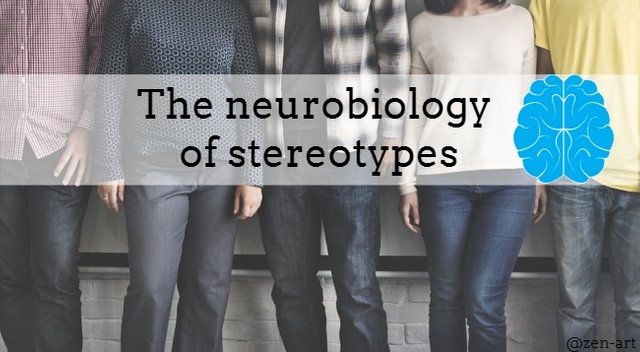
CC0 licence, Pixabay, author: rawpixel , adapted by me
With the worldwide communications, we have increased diversity at every level and are almost constantly surrounded by various types of people. This should help us be more open toward that diversity, right? I thought so too but when you think about it, even in advanced societies, academia, and science, prejudice appears to be still present consciously and unconsciously. Some forms of it are pathological and others developed through unconscious social learning, but they are there. Before we go into this further and see what neuroscience studies say about it, we first need to make a clear distinction between prejudice and stereotyping.
Prejudice
Prejudices are attitudes and feelings about other types of people regarding their ethnic, social, racial and religious background. Those feelings are usually toward people we don’t understand or have not met before.
Stereotyping
Stereotyps are generalizations of characteristics of other groups, such as level of intelligence, capabilities, and apperance. We basically asign traits with no evidence to back it up.


We can say that stereotypes are category-based beliefs we have about other people, while prejudice is a set of affective reactions or attitudes. Discrimination is when those beliefs and reactions result in negative behavior. All those three things together (and individually) lead to conflict and, unfortunately, violence.
People are prone to placing things into categories
To understand the anti-Semitism in the context of Nazi Germany, psychologists considered stereotypical thinking as pathological and linked it to authoritarian personalities but Gordon Allport took it further in his book from 1954 The Nature of Prejudice. He explained that humans are prone to placing things and people into categories using various traits.
Is prejudice a logical result
of the categorical thinking?
According to the social cognition field, stereotypes are considered generalizations and they are a normal part of human cognition. With using a statistical approach, if we see 5 people acting in one way, the 6th that will have some of the same traits as them will be considered the same in all the traits. If we have strong negative feelings about a certain group, it can result in discrimination of every individual belonging to that group.


Psychologist Wim De Neys of Leuven University, Belgium explored the brain in action with his research about stereotypical thinking. He was curious to see if it is a detection problem or a self-control problem so he observed both those brain regions.
A psychology problem made people summon up
the stereotypes residing in their neurons.
The participants were told the following story:
"There is a room with 1000 people in it, 995 are lawyers and the other five are engineers. You get to meet just one of these people who is picked randomly from the group and whose name is Jack. You learn that Jack is 45-years-old and has four children. He has little interest in politics or social issues and is generally conservative. He likes sailing and mathematical puzzles. Is Jack a lawyer, or an engineer?"
If you were to use only the logical part of your brain, you would conclude that the probability of Jack being a lawyer is 99.5% and the probability of him being an engineer is 0.5% but most people base their answer on the opinion about what kind of people lawyers and engineer are. Of course, there is no right or wrong answer here because Jack could be either one of those things.
Findings were amazing!
After watching their brains, Neys found that the brain’s stereotype detector lit up regardless of whether the subject answered stereotypically or rationally. The conclusion is that we ALL detect the stereotype and recognize it but our inhibition center lights up when we reason out our thinking and make a conclusion based on probability.


Dr. David Amodio, a neuroscientist based at New York University, argues that the knowledge neuroscientists have suggests that there might be two separate systems that give rise to stereotypes and evaluation which is in contrast to previous research. It was previously assumed that the underlying cognitive processes were the same.
One study from 2007 found that white participants exhibit more amygdala activity when looking at faces with darker skin tone than lighter skin tone. Functional magnetic resonance imaging (fMRI) showed that amygdala activity increased with stimuli associated with out-group members. The results of another study, that also used a fMRI machine, showed that the process of stereotyping involves storing information into memory because parts of the brain that were activated in participants who were asked various questions after looking at images of people, were those that are also involved in memory functions.
Inter-group attitudes develop in childhood
Since we are well aware that our behavior is mostly learned and encouraged through prize/punishment method during our childhood and that we are very subjective while we are young, the focus should be on ensuring that classrooms are not transmitting any divisive stereotypes because those could cause significant damage later in life. Diversity should be more present in educational materials.


Our reactions to members of other social groups are sometimes beyond our conscious control. Since groups of humans competed against each other for precious resources like food and water in the past, our brains developed an inherent tendency to stereotype. By being aware of it and practicing rational thinking we can overcome the impulse to judge those that are different from us.
A non-invasive brain stimulation sheds light
on the neurobiology underlying implicit bias
In a review published in the journal Trends in Cognitive Science, Alvaro Pascual-Leone, MD, PhD, and colleagues describe how non-invasive brain stimulation may be used to evaluate potential behavioral interventions intended to reduce stereotyping and discriminatory practices.
An electric current is applied to the outside of the skull and it influences brain cell activity. Neuroscientists apply that current to research participants while they perform mental tasks to determine whether a certain brain region is involved in that task or not.
"Unlike traditional brain imaging techniques, non-invasive brain stimulation can directly impact brain activity and provide powerful evidence that specific brain regions are linked to specific social behaviors -- in this case, we applied it to attitudes and stereotypes towards groups that vary in social characteristics, such as race and ethnicity."
Pascual-Leone, Chief for the Division of Cognitive Neurology and the Director of the Berenson-Allen Center for Noninvasive Brain Stimulation at BIDMC
In their review, Pascual-Leone and colleagues consider publications by investigators who administered the well-validated implicit bias test. This test is about participants quickly sorting words related to social characteristics and those that convey a value judgment, all by undergoing non-invasive brain stimulation. One of the studies demonstrated that stimulation to the brain's anterior temporal lobe reduced participants' stereotypical association between "Arab" and "terrorist" and another reduced the implicit cognitive associations between "male" and "science" and "female" and "humanities."
"Social beliefs reflect associations that strongly ingrained in our brains, and changing them will likely entail the reconfiguration of their underlying biological processes"
Maddalena Marini, the paper's lead author
You can read the entire review published on September 01, 2018 here:
Studying Implicit Social Cognition with Noninvasive Brain Stimulation by Maddalena Marini, Mahzarin R. Banaji, Alvaro Pascual-Leone


There is an urgent need in our society to better understand our intergroup social behavior. No one is born a rasist, no one is born a Nazi, and no one is born with any stereotype or prejudice what so over. We are shaped and moldeded by our sourdundings that spark or defuse what is heredity and in our genes since long time ancestors from caves. Only by continuous practise of critical and rational thinking can we be better in the emotional parts of our lives. Whenever you have a "bad" feeling about someone, stop and think. Ask yourself why that emotion or a stereotype thought is there and try to use logic. Stereotypes are cruel and hurtful and they harm both sides.
To read more about this topic, visit these references:
Until next time,
KEEP YOUR SMILE ON,
and spread some love.


Image sources AND LICENCES in order of appearance:
- all images used in this post are free for commercial use, they are royalty free with the links to original images provided under them
- line divider that I use is from FREE CLIPART LIBRARY, and is here
- title pictures are made by me using the CC0 images from pixabay that can be found here
- my bitmoji avatar was created on https://www.bitmoji.com/, visit the site to create yourown
PROUD MEMBER OF:



@steemitbloggers


















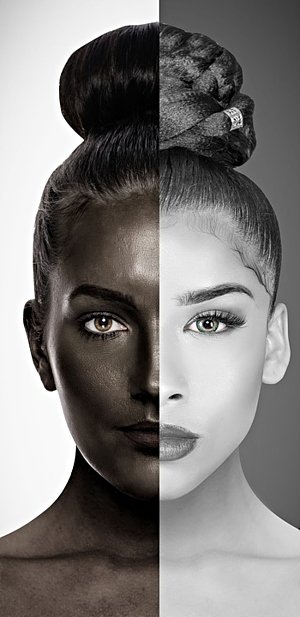
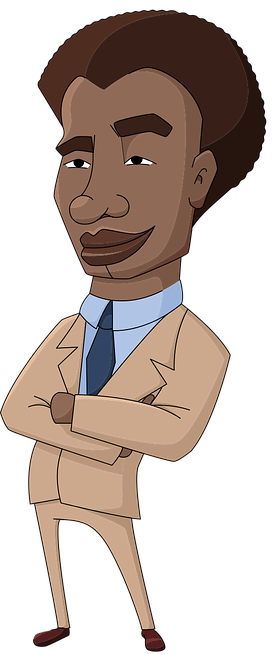
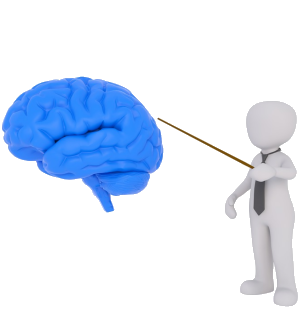
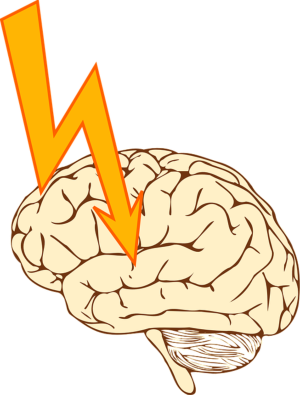
This post has been voted on by the SteemSTEM curation team and voting trail in collaboration with @utopian-io and @curie.
If you appreciate the work we are doing then consider voting all three projects for witness by selecting stem.witness, utopian-io and curie!
For additional information please join us on the SteemSTEM discord and to get to know the rest of the community!
Thank you for your amazing support, it is very much appreciated! 💚
Hi there @zen-art! What a beautifully written post and that formatting of yours is also amazing. I like this more personalized approach on people's blogs.
I took the lawyer-engineer test and guess what... I fell in the trap. I guess getting away from your stereotypes is as hard as getting away with one's skin, they have become one with us and to try and get over them is a really difficult task. I believe with education and proper upbringing we could at least make stereotypes weaker for future generations, although we cannot neglect the fact that stereotypes and generalizations sometimes protect us from possible dangers (let's not expand on people and look on an animal example, when you know that an animal is a possible carrier of a specific and dangerous disease, then keeping away from it might eventually save your life). The point I am trying to make is, we should learn to evaluate a stereotype before trying to either rationalize it to an extend or reject it. (This is a loooong and complex story, I know...)
I enjoyed reading your work! Keep it up!
There is a reason why stereotypes are still in our minds, they were protecting us from danger and still can. If I see a person with a knife or a gun coming towards me, guess what, I will not think he wants to share philosophical views, I will run. :D The point is to, as you said, evaluate. Stop and think, figure out where a certain opinion is coming from and is it objective and rational or not. Thank you for your amazing comment and for adding your input to this subject! 💚
Jeeze, Petra. Another incredible post that is just thought provoking as hell. How do you keep coming up with them? I'm more impressed every day, it seems.
I have a really good friend that is a serious bigot. Part of being friends with me is unvarnished and raw calls on bullshit. We've had more than a couple, in fact probably average a couple per week.
The thing about his behavior that just puzzles me is that he has really long term black friends that he places outside one of the groups he routinely disparages. It is as if individuals and groups are exclusive in his mind. I do not understand.
For thirty years I have been hammering him with my theory that the percentages are precisely the same for all humans. Say 5% are complete asshats, 10% are sporadic asshats 70% are ordinary folks, 10% are sporadic exceptional and 5% are always exceptional. (Not the numbers and wildly simplified)
He gets it, he really does. But he can ignore the 5% in one group and use the same 5% in another group to judge the whole group negatively (or positively depending on the group). It baffles me.
Thank you Petra. Your contribution and service to this group is exceptional.
I will tell you a little secret... I open sciencedaily.com every day instead of those "normal" news portals with celebrities and politicians to find my inspiration and daily reading material :)
Your friend seems interesting, I have a couple of them like him too and they baffle me as yours baffles you. Those numbers are something I would agree with and based on my experience with people tell you that they are statistically accurate with mentioning that they all have a possibility of changing sides at any given point :) Keeping that in mind, I think we are all sporadic asshats more times then we would like to admit. Trying not to be an asshat is the key here so good luck to as all :)
Oh the Us vs Them thing...it's crazy and yeah it's still here very strongly.
I feel sometimes like our governments want to keep us separated through prejudice.
Interesting test with Jack the Lawyer. But in my logic Jack was definitely more an engineer than a lawyer! I think this behavior must come from media, our parents and schools, we are constantly told to not trust the strange (strangers or those who are different than we are) no?
True, no one is born with that. Making assumptions about someone (or anything) is a handicap. I started telling everyone I know to read The 4 Agreements, a sort of life guide, or philosophy I guess... One of the agreements is: Never assume anything! That alone can bring people a long way towards a none prejudice self...
Thank you
It is a shame that us vs. them is still strong but I do think that we can change that with talking and educating people. Thank you for your great comment, keep on not assuming! 💚
I'm not really convinced there will ever be no more us vs. them and I'm usually a lretty positive thinker. We may be the same human race across the board but we are all so different at the same time. Because we have this complex thinking process our cultures make us believe the the world has all these different facets... and perhaps it does but we don't need to be seperated. I say this bit I do hope one day we will all be one.
Congratulations! Your post was selected by the @dropahead Curation Team (dCT)
We tend to fixate one concept about things and we rarely stop later to review whether or not our ideas were properly formed. Thus we usually grow old carrying many preceptions that are frozen in time and have not evolved at the same rate as our age. Many grown ups turn to have a childish/ teenager like stereotypes. It is interesting to know how this is related with the biological processes of the brain...
@dropahead - Supporting your STEEM adventure
Quality review by the dropahead Curation Team
According to our quality standards(1), your publication has reached an score of 89%.
Well said Gabriel García Marquez: "One learns to write by writing" Keep trying, you will soon achieve excellence!
(1) @dropahead's quality standards:
- Graphic relation to the text (Choice of images according to the text)
- Order and coherence
- Style and uniqueness (Personal touch, logic, complexity, what makes it interesting and easy to understand for the reader)
- Images source and their usage license
Yes, I have seen a lot of adults with childish stereotypes, I often ask people How old are you? :) Thank you for your support 💚
Congratulations! This post has been upvoted from the communal account, @minnowsupport, by zen-art 💚 from the Minnow Support Project. It's a witness project run by aggroed, ausbitbank, teamsteem, someguy123, neoxian, followbtcnews, and netuoso. The goal is to help Steemit grow by supporting Minnows. Please find us at the Peace, Abundance, and Liberty Network (PALnet) Discord Channel. It's a completely public and open space to all members of the Steemit community who voluntarily choose to be there.
If you would like to delegate to the Minnow Support Project you can do so by clicking on the following links: 50SP, 100SP, 250SP, 500SP, 1000SP, 5000SP.
Be sure to leave at least 50SP undelegated on your account.
according to Jordan Peterson the implicit bias test is crap
Why is he yelling at me? :D I am really subjective when it comes to listening to people who yell in order to convince me about something. I do not like it or respond to it well. Is there a written form of this that would highlight his views?
Is this the guy who accuses the liberal left in universities of postmodern thinking? I have heard a lot of people accusing him of ‘pseudo-facts’ and conspiracy theories. I did find out that he is also promoting white nationalism. Is that correct or made up to discredit him? If so, I am not surprised at his stands on this topic. Since I am not familiar with his work except the big and scary negative headlines after googling him, I will have to check him out. Thank you for bringing it to my attention.
he´s got hours of psychology lectures on youtube and he´s smack in the middle of the culture war, so quite entertaining.
Also Joe Rogan has interviewed him (3 times I think) and I think them interviews are fucking brilliant.
If I had to label myself, I would call myself left, but the antiauthoritarian type, and I like to listen to conservatives like Peterson, Shapiro and enfant terrible Milo, to learn about different kind of views.
Listening to all sides is not only important but crucial. How else would we reach an objective stand and a rational conclusion on anything if not by taking everything into account? I will definitely read about this guy. Thanks again 💚
The whole liberal vs conservative division is a prime example of the us vs them mentality you examined in your post. It's the arguments that matter, at the end of the day, and we ought to examine each individually. I was watching a vlog with Michael Shermer recently that was quite illuminating because of its well-argued conservative positions (I am mostly a liberal). Peterson is also one of the people I like to watch and keep the good and reject the bad, as he's prone to be both correct in one sentence and then a mythologist in the very next.
Hi @zen-art!
Your post was upvoted by utopian.io in cooperation with @steemstem - supporting knowledge, innovation and technological advancement on the Steem Blockchain.
Contribute to Open Source with utopian.io
Learn how to contribute on our website and join the new open source economy.
Want to chat? Join the Utopian Community on Discord https://discord.gg/h52nFrV
Your support is always appreciated, thank you very very much! 💚
Congratulations! This post has been chosen as one of the daily Whistle Stops for The STEEM Engine!
You can see your post's place along the track here: The Daily Whistle Stops, Issue 285 (10/18/18)
Thank you 💚💚💚
I don't know how much more important a post can be, than this one. It has recommendations for helping to nurture future generations that may be less biased, but better than that, the post asks us to look at ourselves. I know in my own life (it is a long life) I've had the opportunity to reexamine biases I was taught as a child. I'm not sure what my amygdala does when I meet someone from a group I was taught to fear, but I know what my conscious mind does. It rejects this impulse.
I do think stereotyping is based on structural influences that are at play long before we go to school. If in our neighborhoods we see only one type of person, other types are 'strangers'. These are hard biases to overcome and they are pervasive--carry over into schools, clubs, places of worship.
It's a great, valuable blog.